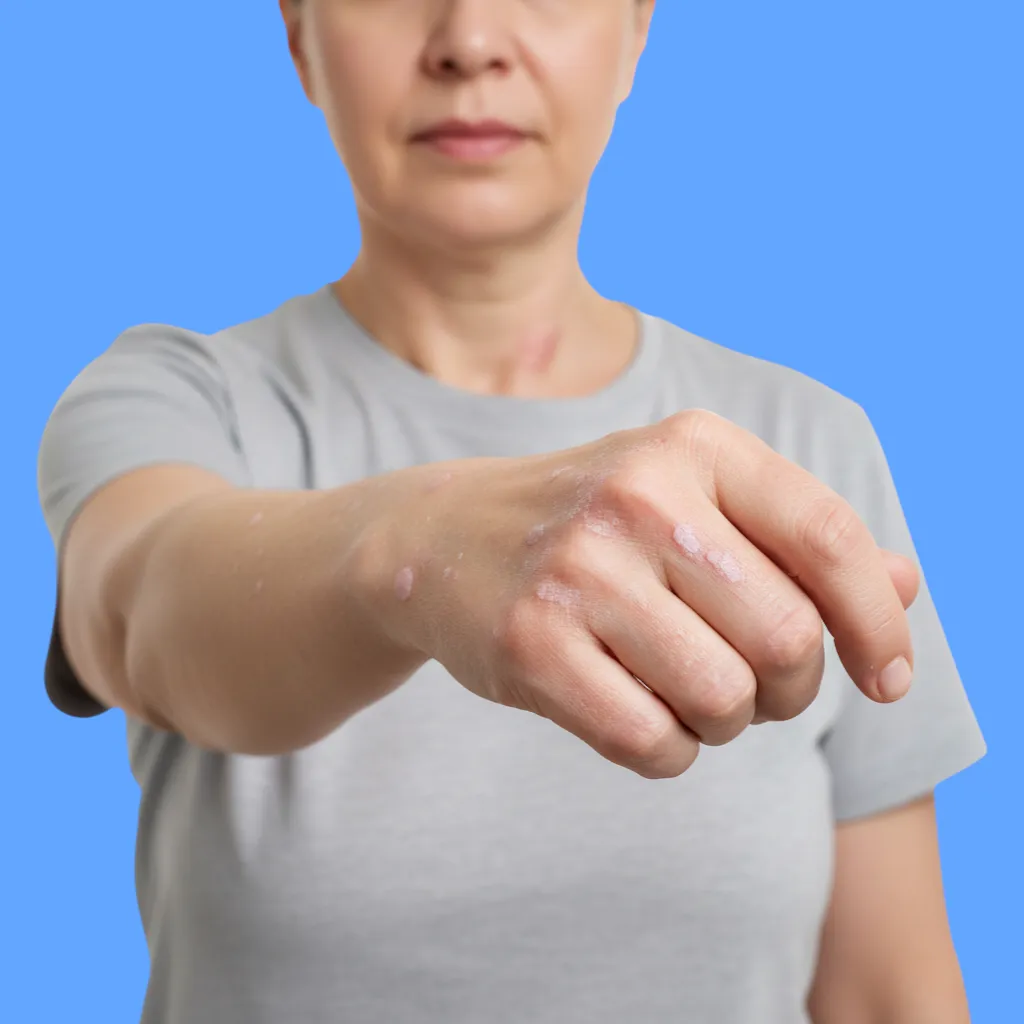what is psoriasis?
psoriasis is a chronic non contagious skin condition that appears due to an immune system malfunction leading to an abnormal acceleration in skin cell growth
this acceleration causes cells to accumulate on the surface of the skin forming thick red patches covered with silver scales which are often itchy and painful
the condition tends to appear in cycles with periods of improvement followed by flare ups some cases are mild and only annoying while others may affect the joints or even daily life
what are the causes of psoriasis?
there are several common causes of psoriasis including:
- immune system dysfunction attacking healthy skin cells
- genetic factors and family history of the disease
- stress and psychological pressure
- bacterial infections such as streptococcal throat infection
- skin injuries like cuts or burns
- cold and dry weather
- smoking and alcohol consumption
- use of certain medications like lithium and beta blockers
what are the common symptoms of psoriasis?

patients may experience several common symptoms including:
- red patches on the skin covered with silver scales
- intense itching or pain in affected areas
- dry and cracked skin which may bleed
- changes in nails such as thickening or separation
- swelling and stiffness in joints in case of psoriatic arthritis
when should you see a doctor?
it is advised to consult a doctor urgently if any of the following occur:
- severe pain or bleeding in the skin
- daily activities are affected by symptoms
- signs of joint inflammation such as swelling and stiffness
- sudden and widespread skin rash
- no improvement despite using treatments
how is psoriasis diagnosed?
the disease is diagnosed using several methods including:
- clinical examination of the skin nails and joints
- taking a skin biopsy and examining it under a microscope to identify the type of psoriasis
- ruling out similar skin conditions like eczema or lichen planus
how is psoriasis treated?
there are several treatment options for psoriasis including:
- topical creams such as corticosteroids and vitamin d derivatives
- phototherapy using ultraviolet light
- oral medications like methotrexate and cyclosporine
- biological drugs targeting the immune system
- regular use of skin moisturizers
can psoriasis be cured?
psoriasis is a chronic condition that cannot be completely cured but symptoms can be controlled and quality of life improved
response to treatment varies from person to person and symptoms may disappear for long periods and then return
commitment to treatment and a healthy lifestyle greatly help in managing the disease
what are the prevention tips for psoriasis?
there are several tips to help prevent psoriasis including:
- avoiding stress and psychological pressure
- keeping the skin well moisturized
- avoiding scratches and injuries
- staying away from smoking and alcohol
- moderate exposure to sunlight
- avoiding medications that may trigger symptoms without medical advice
what are the possible complications of psoriasis?
some complications may occur if the disease is neglected such as:
- psoriatic arthritis
- chronic skin changes
- psychological issues like depression and anxiety
- sleep disturbances due to itching
- social isolation due to skin appearance
common questions about psoriasis
does psoriasis affect the nails
yes it may cause changes in nail shape and color
can psoriasis go away on its own
in some cases symptoms disappear temporarily but usually return
does psoriasis affect the joints
yes it may lead to psoriatic arthritis in some cases
is psoriasis related to autoimmune disorders
yes it is considered an autoimmune disease where the body attacks its own healthy cells